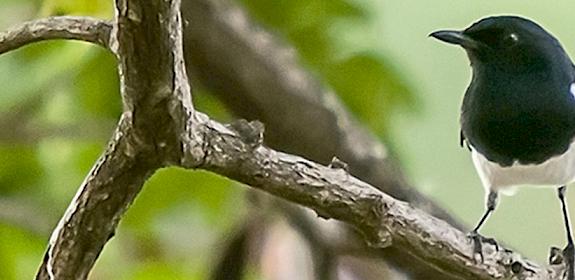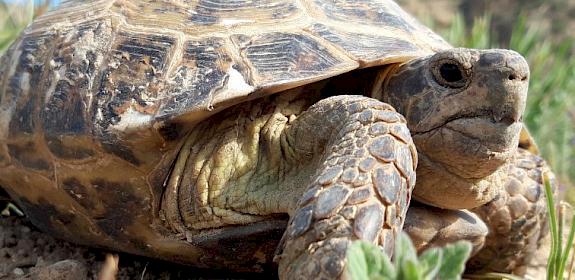Effective enforcement key to survival of Helmeted Hornbill
Petaling Jaya, Malaysia, 23rd August 2016—The passing of a Resolution on Conservation of and Control of Trade in the Helmeted Hornbill at next month’s Conference of the Parties to the Convention on International Trade in Endangered Species of Wild Fauna and Flora (CITES) is a vital move towards securing the future of one of Southeast Asia’s iconic bird species, says TRAFFIC.
The Helmeted Hornbill Rhinoplax vigil is threatened by poaching and wildlife trafficking, which have risen significantly owing to increased demand from China for Helmeted Hornbill “ivory”—the hornbill’s unique solid bill casque.
The species is fully protected under Chinese law, across all its range States in Southeast Asia and has been listed in Appendix I of CITES since 1975, which in theory prohibits all commercial international trade.
The appropriate legislation is in place, but it is not being adequately implemented
Dr Chris R Shepherd, TRAFFIC’s Regional Director for Southeast Asia
“A CITES Resolution would help raise international awareness of this critical enforcement failure which has put one of Asia’s flagship species on the brink of extinction.”
The scale of trade in Helmeted Hornbills was outlined in TRAFFIC’s recent report, Trade in the Helmeted Hornbill Rhinoplax vigil: the ‘ivory hornbill’, where researchers documented a minimum of 2,170 casques seized in the course of 31 enforcement operations in China and Indonesia between March 2012 and August 2014.
The report estimated anywhere between 1,200 and 27,000 birds had been poached from Western Kalimantan during that time—even the lower figure would be dangerously high for a species that reproduces only slowly.
The Resolution before CITES Parties next month urges Parties to adopt comprehensive legislation and enforcement controls to halt poaching and commercial trade in Helmeted Hornbill specimens, and prohibit the display, sale and acquisition of specimens. Importantly, it calls for cross-border co-operation between range States on habitat protection, in anti-poaching efforts and for monitoring the impact of hunting on hornbill populations. It also urges States to develop and implement a Conservation Action Plan for the Helmeted Hornbill, and undertake public education programmes both to reduce demand for Helmeted Hornbill products and promote awareness of relevant laws.




